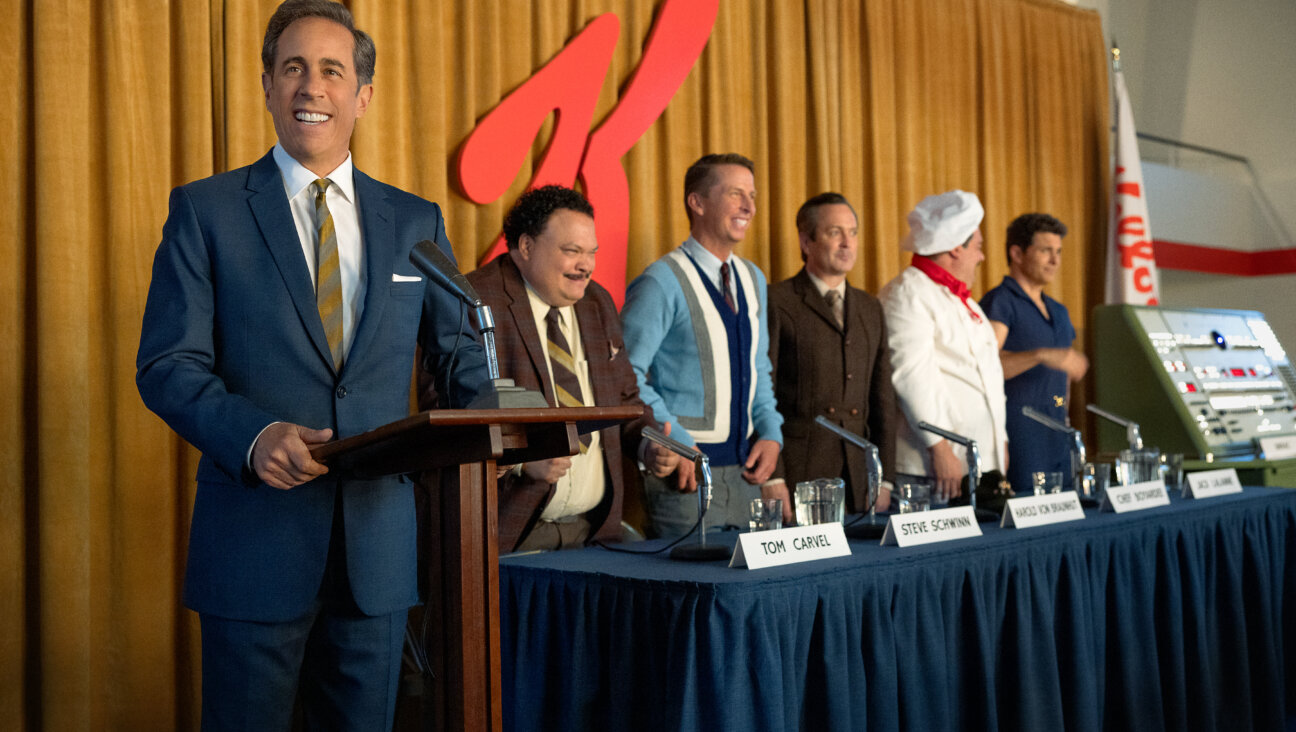How Woody Allen Lost Me

Image by Anya Ulinich
Here’s a free idea for a play. Or maybe it’s just a skit. I was thinking of writing it a while back, but the premise seemed thin, so I set it aside. It’s a light comedy, circa 1970-something. A young, neurotic film critic — just getting out of yet another bad relationship — is visited by the ghost of a movie star, who counsels him on how to succeed in romance. It’s the same basic set-up as “Play It Again, Sam,” except in this version, the movie star isn’t Humphrey Bogart, it’s Woody Allen. In the original story, Bogart’s advice ultimately helps our hero become the self-confident lover he wants to be; in the new story, Allen’s outdated one-liners backfire, the women our hero meets think he’s a creep and he fails even more miserably than before.
Maybe the idea’s hackneyed, and there are some issues regarding libel and fair use that would have to be worked out, but these days, I think the new version seems truer to life than the old one.
It’s been a while since liking Woody Allen films shifted from being a sign of intellectual sophistication to one of social deviance, but I became aware of this fact once again just this past winter, when I was sitting in a coffee shop on Manhattan’s Upper West Side, trying to write but getting distracted by the first date going on a few tables away. Okay, maybe I should be more specific so that you don’t think I’m just making this up to support a thesis: It was in mid-January at The Hungarian Pastry Shop, and I was having a cherry strudel and a decaf.
They were both grad students, but he was easily pushing 40 and she was probably in her late 20s. He was tall, lanky and nerdy — in the 1982 movie version, Jeff Goldblum would have played him; she favored “Flashdance”-era Jennifer Beals. And yet, despite the age difference, they were connecting. He was cracking jokes about I-don’t-remember-what, and she was laughing and telling him how he really had to come back to her place sometime soon; he said how about tonight, and she said tonight was good with her.
It could have all ended there, but she had just gotten a refill, so they stuck around for a while, talking and cracking each other up.
And then it happened; he said the thing that he apparently never should have: “This is just like a scene out of a Woody Allen movie.”
He actually said that: This is just like a scene out of a Woody Allen movie.
She said, “What?”
The guy repeated what he had said the first time, then went off on a riff about how much he loved Woody Allen movies and which ones were his favorites.
It may sound like a stretch to say that the entire mood of the conversation shifted right then, but it did. He got more verbose; she turned quiet and aloof. You could almost see her taking note of the age difference that hadn’t seemed like a big deal a few minutes before. You could imagine her remembering the bad dates she’d gone on to Woody Allen movies, or maybe just the awkward times she’d had with her parents when they’d tried to introduce her to their favorite Allen flicks. Or maybe she was remembering the time she tweeted an article with the hashtag #IStandWithDylanFarrow.
Whatever he or she might have been thinking, the conversation at the cafe became like that scene in “Taxi Driver,” where Cybill Shepherd realizes that Robert De Niro’s idea of a good first date is a trip to a porn flick called “Sometime Sweet Susan.” You could tell, too, that the guy in the coffee shop realized something had changed but had no clue what he could do about it. He reached across the table. I don’t know if he was planning to touch her cheek or her hair, or if he was signaling to a barista, but somehow he knocked over the coffee. It spilled all over the table, then onto the floor. And then there were paper towels and apologies from the guy. and an “It’s fine, it’s fine” from the woman. He offered to get her another cup, but clearly it was over.
I don’t remember what excuse she used, or if she even used an excuse, but — as the Nicolas Cage movie title goes — she was “gone in 60 seconds.” And, to quote Ice T, he was “alone like Stallone.” Clear signs of Woody Allen’s loss of cultural cachet.
You want another signifier? I’m writing this on the day that Allen’s latest film, “Irrational Man,” was released. In today’s New York Times arts section, a review of Amy Schumer’s “Trainwreck” gets Page 1; “Irrational Man” is located on Page 9, below a review of “Ant-Man.”
Watching Allen’s most recent movies in what will surely become known as his late period, it’s hard to remember the time when his comedy was anarchic, counter-cultural. That the guy who continues to populate his schematically nihilistic movies with wealthy, elitist pedants was an unpredictable and formally inventive, antiestablishment artist. That the filmmaker whose Spotify playlist usually seems to stop at 1944 had a comic sensibility that was one part S.J. Perelman, one part Lenny Bruce and another part rock ’n’ roll. That the guy who continues to drop smug references to poets and philosophers was the comic who formed a bridge between the Marx Brothers and “Saturday Night Live.”
With rare exceptions, Allen’s 21st-century oeuvre pales when compared with his earlier classics. Watching a Woody Allen flick from the 1970s and following it up with one from last year or the previous year can be a depressing affair, akin to reading Philip Roth’s “Goodbye, Columbus,” then turning to “Exit Ghost” or “Indignation.” The stronger ones feel like reworkings of Allen’s old material (“Midnight in Paris”) or plagiarism from better artists’ best work (“Blue Jasmine”). The weaker ones rank among the worst films ever made by a major filmmaker (“Whatever Works,” “Hollywood Ending”)
You can try to chalk up the whole thing to age, to the fact that, at a certain point, artists become wealthy and content, lose their mojo and begin to repeat themselves. Look, the guy’s almost 80; cut him some slack. But Martin Scorsese made “Wolf of Wall Street” at 71, Jean Luc-Godard directed “Goodbye to Language” at 84, Agnes Varda made “The Beaches of Agnes” at 80. Alain Resnais completed “Life of Riley” just before he died, at 91. And each of those films bursts with a vitality that Allen’s films have lacked for decades. Look, I think Clint Eastwood’s overrated, and his “Mystic River” bored me to tears, but I’d sit through “American Sniper” and “Gran Torino,” films Eastwood made when he was 84 and 78, respectively, before I’d watch “Melinda and Melinda” or “You Will Meet a Tall Dark Stranger” again.
So, when did it happen? Was there a moment when Allen lost touch with the Zeitgeist or when the Zeitgeist passed him by? When did saying you liked Woody Allen movies on a date turn from selling point to death knell? When did Allen stop being the anti-hero who pulled Marshall McLuhan out of a line at a movie theater to confront a pompous windbag and become that very pompous windbag? I’m Soren Kierkegaard. You know nothing of my work. How you can get a job making films that reference my philosophy is amazing.
“When did all that happen?”
Let’s try 1992.
Here’s a scene from my college years. At our newspaper, I was the F/Arts (features/arts) editor, which afforded me the opportunity to have dinner at some establishment in Poughkeepsie, New York, with visiting critics Janet Maslin and Andrew Sarris. I don’t remember Maslin talking much, but Sarris was voluble. He spent the first part of the meal loudly insulting his colleagues for treating every one of Allen’s films as if it were “the word of God.”
I actually got huffily offended. “But shouldn’t they?” I demanded.
A long silence ensued.
When it came to Woody Allen fandom, I was an early adopter — grew up listening to his stand-up comedy double album, stayed up late to watch him on “The Dick Cavett Show,” taped the National Radio Theater of Chicago production of his one-act play “God” off WFMT, made a special trip to see his unaired TV comedy specials at an exhibit at the Museum of Broadcast Communications. There were Woody Allen triple features at the Adelphi, double features at the Varsity.
Sure sometimes the films were mediocre (“A Midsummer Night’s Sex Comedy”). Or inconsequential (“Radio Days”). Or stupid (“Everything You Always Wanted To Know About Sex, but Were Afraid To Ask”). Or pompous (“September”). Or nowhere near as insightful as they were intended to be (“Another Woman”). Sometimes they played less like actual films and more like Ingmar Bergman fan fiction (“Interiors”). But I forgave them their flaws because they were part of a tantalizing alternative universe, one where nebbishy intellectuals triumphed over pompous elites, where heroes and heroines fell in and out of love while watching Kurosawa, Bergman and DiSica movies in a Manhattan that seemed so much lovelier than the real one.
But then came 1992. You know this part, and I can’t really add anything new to it, so feel free to skim until you get to the next paragraph. That was the year of the split from Mia Farrow; the allegations that Allen had abused his then- 7-year-old daughter Dylan; the revelations of Allen’s relationship with Farrow’s daughter Soon-Yi Previn, who would later become Allen’s wife. Amid the lurid headlines, Allen released “Husbands and Wives,” one of the most effective “serious” films of his career, despite or because of the fact that it played like a home movie. And, of course, all this was hashed and rehashed again just last year, following New York Times columnist Nicholas Kristof’s publication of Dylan Farrow’s letter on his blog and Allen’s rebuttal on the paper’s opinion pages.
Over the years, I spent a fair amount of time buying into Allen’s depiction of his Mia Farrow as a vindictive and manipulative harridan who had manufactured the story of abuse. I also spent a fair amount of time wondering why I was so willing to accept the word of a millionaire celebrity filmmaker who always presented himself as the moral center of his films. And I also spent a fair amount of time analyzing creepy lines of dialogue in movies I’d formerly enjoyed — for example. Diane Keaton’s remarks in “Play It Again, Sam”: “If anybody tried to rape me, I’d just pretend to go along with it and then grab a heavy object and let him have it, That is, unless I was enjoying it.” Mostly, though, I spent time wondering why I invested so much time worrying over the fate of a wealthy stranger whom I’d never met and had only glimpsed filming admittedly mediocre movies on the Upper West Side (“Anything Else”; “Fading Gigolo”).
I continued to make annual pilgrimages to see Allen’s flicks, but after 1992, something had changed — not just how I viewed the films, the films themselves. They were nastier, more bitter. Women were neurotics or floozies, or some combination thereof. Prostitutes were ubiquitous. Hostile self-justification was palpable. Now the films featured murders and other crime plots, even though Allen didn’t seem particularly adept at orchestrating them. (Recently, Allen announced that his next film, as yet untitled, will also deal with crime.) I’m not exactly prudish when it comes to such matters, but in 1992 and afterward there was a noticeable uptick in profanity, This was discomfiting, particularly when it was spoken by Allen himself. To wit, this line from “Deconstructing Harry”: “Beth Kramer’s an aggressive, tight-ass, busybody c—t, and it’s none of her f—king business how I speak to my son.” Those words are spoken in relation to a character played by Mariel Hemingway, who played Allen’s teenage love interest in “Manhattan.”
Here’s a brief not-entirely-scientific survey that owes a small debt to Deadspin’s Tim Grierson, who posted the article “You Whores: A Complete Guide to Woody Allen’s Many Hooker Characters” a few years back.
Number of Woody Allen films released before 1992 featuring prostitutes: 2 (“The Purple Rose of Cairo,” “Shadows and Fog”)
Number of Woody Allen films released in or after 1992 featuring prostitutes: 8 (“Husbands and Wives”; “Mighty Aphrodite”; “Sweet and Lowdown”; “Deconstructing Harry”; “Celebrity”; “Scoop”; “You Will Meet a Tall Dark Stranger”; “To Rome With Love”).
Number of Woody Allen films released before 1992 in which murder is a key plot point: 2 (“Crimes and Misdemeanors,” “Shadows and Fog”)
Number of Woody Allen films released in or after 1992 in which murder is a key plot point: 6 (“Manhattan Murder Mystery,” “Bullets Over Broadway,” “Cassandra’s Dream,” “Match Point,” “Scoop,” “Irrational Man”).
Number of Woody Allen films released before 1992 in which Allen drops a C-bomb: 0
Number of Woody Allen films released in or after 1992 in which Allen drops a C-bomb: 1 (“Deconstructing Harry”)
Number of Woody Allen films released before 1992 in which a character drops an F-bomb: 4 (“Manhattan,” “Stardust Memories,” “September,” “Alice”).
Number of Woody Allen films released in or after 1992 in which a character drops an F-bomb: 10 (“Husbands and Wives.” “”Bullets Over Broadway,” “Mighty Aphrodite,” “Everyone Says I Love You,” “Deconstructing Harry,” “Celebrity,” “You Will Meet a Tall Dark Stranger,” “To Rome With Love,” “Blue Jasmine,” “Irrational Man.”)
‘Irrational Man,” which I saw at its sparsely attended first morning screening at Angelika Film Center, finds Allen working over more or less the same themes of injustice and meaninglessness that bedeviled adolescent Alvy Singer in “Annie Hall.” Let’s dispense with the plot basics as quickly as possible, because you can just as easily skim them on IMDB: Abe Lucas (Joaquin Phoenix), a despairing, alcoholic, philosophy professor with a reputation for womanizing, arrives at a Rhode Island liberal arts college, where he is pursued by a sharp student named Jill (Emma Stone) and by Rita (Parker Posey), a science professor who’s trapped in a crappy marriage. Resistant to Jill (because she’s already in a relationship, albeit with a well-meaning, rich, mirthless twerp who favors polo shirts and loafers) and Rita (because it turns out he’s impotent), Abe overhears a woman discussing how an unfeeling, politically connected judge is cheating her out of custody of her children. Once Abe decides to take justice into his own hands and kill the judge, he finds himself newly invigorated. For him, murder proves to be the new Cialis.
Given Allen’s history, Abe’s ruminations on murdering a judge in a child custody case are more than a little uncomfortable. But leaving that aside, the premise is provocative and compelling. For the most part, Allen’s dialogue is less stilted than it’s been in a while. The performances are uniformly strong; Darius Khondji’s cinematography is gorgeous; the Ramsey Lewis on the soundtrack is a nice touch, even if Allen has used it before. The nods to Orson Welles’s “The Lady From Shanghai” and Alfred Hitchcock’s “Strangers on a Train” play more like clever homages than like out-and-out theft.
Still, it’s hard to take Allen’s philosophizing seriously now that the films he makes fail to take place in any remotely recognizable reality. “Blue Jasmine”? Terrific performances from Cate Blanchett and Sally Hawkins, but which off-Broadway production of “A Streetcar Named Desire” did everybody else crawl out of? “Mighty Aphrodite”? How does Allen’s character afford that apartment on a sportswriter’s salary?
In this regard, “Irrational Man” is no exception. As in much of Allen’s recent work, the characters are surrounded by seemingly immeasurable wealth. A student (nicely played by Bette Midler’s daughter Sophie Von Haselberg) throws a party at her house and shows off the new Willem de Kooning and R.B. Kitaj paintings her parents have acquired. Emma Stone and her friends discuss relationship woes on weekend horseback rides. Stone’s boyfriend proposes they spend the year after college in Oxford. Parker Posey contemplates starting life over in Spain. At dinner, when Phoenix orders a martini for the moonstruck Stone, she is forced to say, “I love that you order for me.” Who are these people?
As for our homicidal philosophy professor, I’ve known more than a few tiresome, self-important, philandering instructors in my time, but here our filmmaker shows no evidence of having set foot on a college campus since the 1960s. Phoenix’s philosophy professor spouts off greatest hits’ quotations from a cornucopia of thinkers. Jean Paul Sartre’s philosophy is reduced to “Hell is other people.” Hannah Arendt? “The banality of evil,” natch. The professor evades suspicion in the chemistry lab by helping a student out with a paper on Kant. How are his murderous intentions discovered? He has written them in the margins of a Dostoevsky book.
Watching “Irrational Man,” I was reminded of my reaction to the 2005 film “Match Point,” another Allen-by-way-of-Patricia-Highsmith crime film that ruminated on a godless universe and on the tyranny of luck. Though the movie was one of Allen’s more effective later works, its plot was so contrived and schematic that its convolutions wound up undercutting the theories it was propounding — leaving me to think: If you have to take such pains to rig a story and characters so that they embody your worldview, you wind up making that worldview seem flawed. Or, to put it more bluntly: If the perspective you present in your films is fundamentally dishonest, how can we trust what you say in any venue?
Here’s another free idea for a script. This one might be problematic too, so if you decide to write it, I’d make sure to run it by a lawyer first. Here goes: A successful filmmaker finds himself in an awful marriage. Increasingly convinced that there is no God, he commits a heinous, reprehensible act. Though he more or less gets away with it, he is wracked with guilt and finds his own situation to be further evidence of his own nihilism. His films grow consistently darker and divorced from reality; his characters become obsessed with committing the perfect crime. And the more the filmmaker is rewarded for his art, the more his success shows him that there is no such thing as God or justice.
Or maybe that’s not how it happened. It could all be exactly backwards; maybe the truer story would concern a falsely accused filmmaker who is no longer able to contain his hostility and now channels that rage at injustice into sexist and only sporadically watchable revenge fantasies.
Still, a movie that starts with either of those ideas would be more compelling than just about every film Allen has made in the past 23 years.
Adam Langer is the Forward’s culture editor.

I hope you appreciated this article. Before you go, I’d like to ask you to please support the Forward’s award-winning, nonprofit journalism during this critical time.
Now more than ever, American Jews need independent news they can trust, with reporting driven by truth, not ideology. We serve you, not any ideological agenda.
At a time when other newsrooms are closing or cutting back, the Forward has removed its paywall and invested additional resources to report on the ground from Israel and around the U.S. on the impact of the war, rising antisemitism and the protests on college campuses.
Readers like you make it all possible. Support our work by becoming a Forward Member and connect with our journalism and your community.
Make a gift of any size and become a Forward member today. You’ll support our mission to tell the American Jewish story fully and fairly.
— Rachel Fishman Feddersen, Publisher and CEO
Join our mission to tell the Jewish story fully and fairly.
























